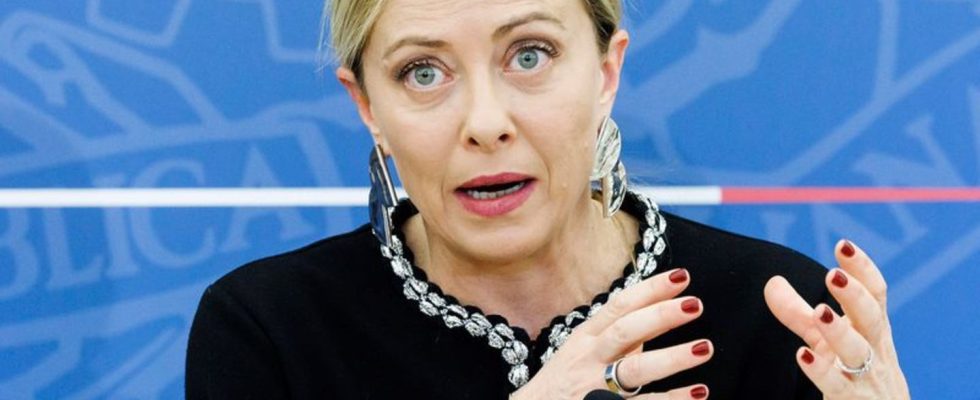refugees
Rome wants to build reception centers for migrants in Albania
“The facilities will be able to accommodate up to 3,000 migrants at the same time”: Italy’s Prime Minister Giorgia Meloni. photo
© Roberto Monaldo/LaPresse/AP/dpa
Italy wants to build two reception centers on Albanian soil for migrants who have come across the Mediterranean. Their asylum applications will be examined there.
In view of the high migration numbers across the Mediterranean to Europe, Italy and Albania agreed on a controversial migration agreement.
Two reception centers for migrants are to be built in Albania, where asylum applications will be examined and, if necessary, faster returns made possible. Italian Prime Minister Giorgia Meloni and Albania’s Prime Minister Edi Rama signed a corresponding declaration of intent in Rome. The agreement is causing criticism in both Italy and Albania.
Exceptions for minors, pregnant women and those in need of protection
Monday’s agreement targets migrants heading to Italy on boats across the central Mediterranean, Meloni told the newspaper Il Messaggero. The people who are rescued and picked up by Italian authorities’ ships will in future be taken directly to Albania for individual case processing. “The facilities will be able to accommodate up to 3,000 migrants at a time,” said Meloni. She hopes to be able to bring up to 36,000 asylum seekers to Albania each year.
Only people whose asylum application was approved would then be brought to Italy. However, minors, pregnant women and other vulnerable people are excluded from the agreement.
According to Italy and Albania’s plans, the centers are to be built in the northern Albanian cities of Shengjin and Gjader. According to Meloni, they should be administered by Italy. Albania will participate in the monitoring. The centers should be ready for operation as early as next year.
In Italy, high migration numbers on the Mediterranean route have been discussed for some time. According to the Interior Ministry in Rome, more than 144,700 people have arrived on boats this year (as of November 3rd). In the same period last year there were around 87,300. The right-wing politician Meloni, whose most important election promise was to curb irregular migration, is therefore under massive pressure.
After several thousand migrants reached Europe again in the summer, calls were made to outsource asylum procedures to third countries. Critics question the legality of such projects. In doing so, Meloni creates facts and, with the deal, provides a first example of how outsourcing asylum procedures to third countries – which is also being discussed in Germany – could work.
Italy hopes for further similar agreements
Meloni praised the agreement with Albania as a possible model for similar agreements with other countries outside the EU. Brussels, however, initially kept a low profile. A spokeswoman for the EU Commission said on Tuesday that they were in contact with the Italian authorities and needed further details. It is important to uphold EU regulations and international law.
EU Commission President Ursula von der Leyen called for closer cooperation with Egypt two weeks ago. Brussels reached a controversial agreement with Tunisia in the summer: In return for financial aid worth millions, the North African country should take stronger action against smugglers and illegal crossings. The EU Commission received a lot of criticism at the time because the Tunisian government was accused of human rights violations. In the meantime, in view of Tunisian criticism, doubts are increasing as to whether the agreement will last.
Meloni, on the other hand, emphasized that Albania “fully guarantees respect for human rights.” The EU is currently conducting accession negotiations with the Balkan country.
However, there was sharp criticism of the migration agreement. It appears to violate international and European law, said Social Democratic opposition politician Elly Schlein. Others described it as “pure propaganda.” “It is a propaganda shortcut that is as ineffective as it is dangerous, as there is a risk of a serious violation of European and international standards,” said Schlein’s party colleague Piero De Luca.
In Albania, the nationalist opposition strongly opposed the planned construction of such facilities. “Without parliamentary discussion, without political consensus (…), Edi Rama transformed Albania from one day to the next into the largest illegal refugee camp in Europe,” wrote Belind Kellici, a member of the executive committee of the opposition Democratic Party (PD), on his Facebook page. This is “treason against Albania”.

